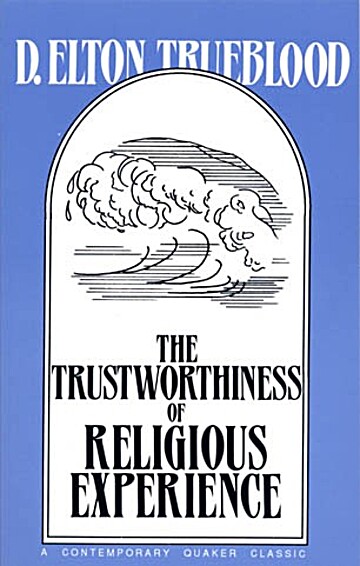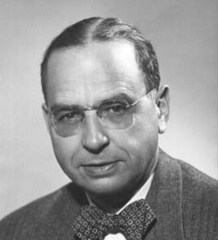|
home | what's new | other sites | contact | about |
|||||||||||
|
Word Gems exploring self-realization, sacred personhood, and full humanity
Soulmate, Myself:
Elenchus. This book was on my shelf for many years, but I’d never made my way through it. I must say, Dr. Trueblood’s writing is an impressive piece of work. Kairissi. What did you like about it? E. It addresses the common arguments made by materialists that there’s no such thing as a sense of God or a spiritual experience; that, it’s “all in your head,” a product of wishful thinking by those who have never grown up, a form of neurosis not dissimilar to the child’s claim to an “imaginary friend.” K. This reminds me of something. We’ve learned from the great mystic teachers, like Andrew Jackson Davis and others, that Twin Souls reveal the “face of God” to each other.
E. Yes, we’ve often talked about this and said, why should this be a strange concept? - because Twins are “made in the image” and, therefore, each to the other, serve as a kind of representative, even a proxy, of God. K. John and Mary don’t really believe this; not anymore. With The Carpenters, they’re tempted to sing, “don’t tell me what it’s all about, ‘cause I’ve been there and I’m glad I’m out.”
E. The parallel you point out is important. Just as the materialist-skeptics claim, there is no real experience of God, it’s an illusion, so too these same arguments are made against Twin-Soul love: there’s no such thing as eternal romance, the fireworks last but a short time, and you just have to grow up and accept that life’s not that way. K. Isn’t it interesting, Elenchus, that in “The Wedding Song” the Spirit Guides speak to these same issues. The Song was given to the Earth because almost no one believes in lasting authentic romance and marriage. E. And in principle it's the same with those who claim “the experience of God” is not real. So, what I’d like to do is take the most important items from Dr. Trueblood’s book and discuss how these compare closely to what Twins have come to know. K. It’s “the trustworthiness of religious experience” and also “the trustworthiness of Twin-Soul romance.”
E. A little time has passed since we introduced this subject. And I’ve been rereading Trueblood’s book. As I did, I must confess, I regretted having anything to do with this assignment. K. But you like philosophy. E. I do, but Trueblood’s arguments sent me to malaise - not because they’re not cogently reasoned; in fact, part of me exclaimed, “I could spend a whole career in some university philosophy department enjoying an analysis of the minutia of arguments for the existence of God and how we come to know divinity.” K. So, Elenchus, what’s not to like about this? E. It’s all too complicated. The truth isn’t complicated. And when we find it, it’s so easy to recognize as something valuable, like finding a gold coin on the street. There’s no debate about it. K. What are you really saying? E. Professor Trueblood is addressing the radical skeptics. And he has all these tightly constructed polemics, well crafted pleadings, as he makes his case for the “trustworthiness of religious experience.” However, as we’ve stated in other contexts, a mystical experience of God, or any sort of transcendent insight, is non-transferable. Can you really make the color-blind person know the meaning of red? K. How would you approach this subject? E. Let me take a step back and borrow a quotation used by Trueblood:
E. My point is this: The “saints” – and with this term I refer to anyone who’s been granted a transcendent awareness of the celestial – the “saints” will likely not be interested in a “courtroom cross-examination” in order to provide evidence of God. They’re too busy being overwhelmed by the mystical experience. They know, or soon find out, that they cannot make anyone else understand what they “saw” during their moments of ecstatic perception. K. It was for them alone. Others will need to seek for their own “visions.” the communion of saints E. There's a phrase Trueblood employs at the end of his book, "the communion of saints." And when I saw that I noted, "that's interesting, even little children, in their religious instruction, the memorization of creeds, know the words the communion of saints" - but what does this mean? K. It's not eating a wafer, and it's more than the fellowship of church-goers, which status can be attained just by filling a seat. E. The "communion of saints" is much different. It's the fellowship, the sharing, one with another, of "in my experience of God, I sensed or 'saw' this, and I want to share it with you." K. This is a beautiful concept, one that the apostle Paul encouraged in his house-churches (Editor's note: see inset-box on the "Bible" page). E. The “saints” can become our teachers, but only in a limited way, like the cave-escapee in Plato’s allegory, of announcing or pointing to what ultimate reality is all about. As we've said, however, each must seek his or her own private experience of God. K. We’ve learned that radical skeptics are not interested in the facts concerning the authenticity of spiritual experience but only in maintaining their private world-paradigms. See all the resistance to the truth in our articles on evolution, the afterlife, and consciousness-based quantum mechanics. E. And so, what we’re left with here, for those who really want to understand “the trustworthiness of religious experience,” is not a primer on philosophical debating points – and I say this with all due respect to Dr. Trueblood and his work, which is profound and weighty in its own right – but, instead, we must learn how to open one’s spirit to the reality of God. K. Elenchus, we stated that there are parallels between finding God and finding one’s true mate, “made in the image.” And I’d like to comment on Dr. Trueblood’s contention that a “religious experience” of God is not so uncommon. It doesn’t have to be a grand "Cecil B. Demille production" with the heavens opening, flaming swords, and angels delivering a golden scroll. These dramatic revelations of God, says Trueblood, are well and good, but this “show-biz” element is not really necessary. For many millions, asserts Trueblood, the “religious experience” is simply an awareness of God in the background of one’s life as one goes about a daily routine. E. This is important. Tell us more about this “awareness.” K. I think it works pretty much exactly the same with discovering the identity of one’s Twin Soul. And I’m reminded of something Andrew Jackson Davis said in this regard, from his book The Great Harmonia: "The reader should be impressed with the conviction that the Law of Association, which moves alike the universe and the human soul, will determine and proclaim who is his, or her, true companion. "No clergyman, no testimony, no legalized contract, or record in Church or State, can determine upon the proper conjugal associate, nor develop the everlasting affection which the spirit demands. The evidence is within. Search yourselves." K. Notice that Davis speaks of a “conviction” – an awareness – and that this inner sense will provide, as Trueblood uses the phrase, a “warrantable assertability” that what we feel, on the deep inside, can be trusted. In other words, this perception is different from all other “I really hope I can have this because I want it so much” stirrings. That’s just the ego talking with its neediness. But the deep inner conviction, the profound assurance, that comes over ones spirit, in the realization of the identity of one’s true mate, brings with it its own sense of guarantee and certitude. E. This is the apostle Paul's "we know" and his "arrabon of the spirit." K. I loved that writing so much. E. We can’t bottle and sell this "knowing" for $29.95, and we can’t offer it to anyone else, or convince them, least of all the radical skeptic. K. As you’ve stated, Elenchus, the truth, when we find it, will be simple in its essence, beautiful in its elegance and unitive force. And when we find God, or the divine agent, one’s Twin Soul, there is no more doubting. Yes, we understand, those who’ve not experienced this will cry 'fraud' and ‘foul’ and claim it's not so.
E. But then, the “saints” are well accustomed to being marginalized and ridiculed.
E. I’d like to return to a question we introduced at the beginning of our discussion: Is the experience of God a product of wishful thinking? K. And let’s say a word, too, about a parallel idea: Can we find our Twin Soul mate by expending much effort in searching, wishing, and desiring? What would you say, Elenchus? E. One’s mental attitude does count for something. Trueblood made this comment: “There are certain moods which might well be supposed to hinder … spiritual communion, conspicuous among these being the moods of the scorner, of the braggart, of the profane, of the supercilious. It is hardly to be expected, even in the hypothesis of God as existent, that the man who jests about Him, will be aware of God’s existence while he is jesting.” K. I feel some dismay as I consider his comment. So many people today feel very free to use God’s name in a flippant and impertinent manner. And even little children pick up this loose talk. E. We find youngsters spouting “OMG!” at the slightest provocation. K. This is supposed to be cute and cache. But when I hear this kind of breezy allusion to the Great Spirit of the Universe I inwardly cringe: “How can you grow into a respect for God and the sacred when you run at the mouth with this cavalier reference to deity?” E. Of course, they’re just parroting what they hear at home. K. Yes, children’s language becomes a barometer revealing the spiritual poverty of a society. But, Elenchus, while one’s attitude toward God, and, let's add, toward finding love, as you say, does mean for much, it’s not the dispositive factor, is it? In other words, sometimes the sincere heart goes begging for an experience of God. E. Here’s what Trueblood wants us to know: “What shall we say of the person who faithfully puts himself in the condition which facilitates spiritual sight, keeps up the discipline over a long period, and yet reports no sense of God’s presence?” K. And concerning the parallel for Twins, one can yearn and long for love with all one’s heart, but that’s no guarantee that life will soon be complete for you. However, I interrupted you, share more of what the professor wrote: “But some such failure is thoroughly consistent with the point we have been making. It is not maintained that the conditions mentioned, such as quietness and humility, are sufficient conditions of a sense of God’s presence, but, in general, necessary conditions.” K. He’s very articulate, isn’t he? E. Yes – the distinction he draws between sufficient and necessary conditions. I wish I had said that. K. (small smile) “There are preparations without which we cannot expect to see God, but this is not to say that those who follow them will always see God. The spirit, we are told, bloweth where it listeth. There is still an unpredictable element about the highest experiences; certainly, they cannot be made to order.” K. Ah, yes, the “unpredictable element.” And I know what you’re thinking now. This is all starting to sound a lot like what happened to us when we “first met.” E. mmm… “One phase of the problem concerning religion and wishful thinking, which many seem to overlook, is found in the fact that religious experience has often been at complete variance with men’s desires… It is really difficult to see how any thoughtful person can lightly ascribe religious experience to wishful thinking in the face of the tremendous and abiding fact of the Cross.” E. This is an excellent point he makes. The radical skeptic will charge, “Your experience of God was just wishful thinking and a desire for an imaginary friend.” K. But then we find out that the “religious experience” morphs into a call to “take up your torture stake” and follow the truth wherever it discomfortingly leads. Well, we can hardly wait, so much wish fulfillment in all that. E. Right. “One of the strongest evidences of the non-illusory character of religious experience lies in this very tendency to apprehend God as One who is independent of our desires and even our expectations… Not only does the content of religious experience run counter to what men have been taught to expect, but the experience itself sometimes comes to men when they least expect it. We do well to emphasize expectancy as part of the mood which makes men receptive, but we must beware of stressing it in such a way as to suggest that something like self-hypnosis takes place. We help to restore balance when we remember men who, like St. Paul, have seen the living Christ, not when they expected it, and certainly not when they hoped for it, but in opposition to all their hopes and expectations.” E. This is a great example used by Trueblood to describe the religious experience as something you didn’t expect, weren’t looking for, and didn’t want. K. It’s Paul’s “Damascus Road” vision of God. Paul’s the posterboy for seeing something “in opposition to all hopes and expectations.” E. Paul “did a 180” and went from hating and persecuting Christians all the way to recasting himself as the leader of the whole shebang. K. That is a long journey. But, actually, there’s another posterboy we should talk about; someone else who suddenly saw something “in opposition to all hopes and expectations.” And I think you know who that is. E. (sighing) K. Though we’ve shared with our readers some of our story, maybe you’d like me to comment: That “first time you met me,” I mean, the real me and who I am to you, you came to me many years after our interactions of youth. Your purpose in speaking to me was not to mend fences but, in a spirit of antipathy, you wanted to diffuse the memory of me by direct contact. You assumed that this would “pop the bubble” of any lingering illusion or possible infatuation. E. I was angry. It was no polite social call but an attempt to psychologically rid myself of you, once and for all. K. You say the nicest things. But during our talk, as you’ve expressed it, you suddenly found yourself in the midst of a life-shattering mystical experience. E. Many years, again, have passed since that transcendent encounter with you. But if I center myself, I begin to inwardly “go nuclear” all over again. This never goes away. It’s always there, ready to be fanned into flame. I usually don’t because it’s too disheveling. K. I think this was your “Damascus Road” experience. E. All I can say, with Trueblood, is that "the spirit bloweth where it listeth." The divine soul has it's own timetable for things. We have nothing to say about it. Most of our lives we might even doubt we have a "soul" or a "higher self," but a day will come when that hidden "true self" will reveal itself and show you who's really in charge. K. Was your soul telling you that he was in love with me even if you weren't? E. I think I really need to have a long talk with my soul. K. (small smile)
postscript E. In the final pages of Trueblood’s book, he states: “When most people ask whether religious experience can be verified they apparently mean that they want something as convincing as is a photograph in astronomical study. The significance of the photograph lies in the fact that the existence of the object reported has made a difference, in this case the difference being the change of a camera plate or film. external evidence to verify “We correctly ask, ‘Was some permanent mark left, a mark which others may see?’ When no such effects can be shown, the fact may be as it is asserted, but it is not verified, and we are justifiably skeptical [without some sort of evidence that can be seen]. the evidence of changed lives “In religion we cannot reasonably look for a mark on photographic plates, but we can reasonably look for a mark on human lives. If the experience of God is what men claim it is, we should expect to see a general change in their character [that is, the] evidence of altered lives…” K. This is an important statement concerning verification. Has the experience of God left a “mark” on the lives of the percipients? Has it changed them, or are they just like everyone else? E. Trueblood spends the final paragraphs of the book offering anecdotes of those in history who, having remained steadfast in their claims of experiencing God, went on to suffer persecution, imprisonment, and even death by the ecclesiastical establishment, which felt threatened by such heretical assertions. are you willing to suffer for what you've realized; if so, then maybe we'll believe that you've 'seen' something special K. In other words, their willingness to suffer for their claim to mystical revelation was the “photographic plate,” the outward mark of evidence for an inward change or celestial perception. E. And I was thinking about all this in reference to the authentic feelings of love and romance known by Twins. The world, comprised of John-and-Mary couples, generally speaking, subscribe to the “many fish in the sea” proposition; meaning, if the marriage doesn’t work out, or if one mate dies, the surviving partner most often feels it to be quite alright to seek for another mate. K. In fact, friends and relatives might be the first to offer persuasion: “You should get married again, it’s too hard to live alone, you need someone in your old age, it’s not good to do everything yourself and have no one to talk to.” E. And, from a certain perspective, this advice makes a measure of sense. However, none of this “many fish in the sea” philosophy will be persuasive to a surviving Twin. He or she will wait for the missing mate, even if it takes many decades, even if it’s in the next life; for him, she is the only one and there could never be another. K. This is the “outward mark” of verification that the surviving Twin has experienced a mystical and transcendent love. In receipt of this, there is no finding another mate. That is entirely out of the question now. for a thousand summers, I will wait for you E. Like the religious experiencers of God, the surviving Twin mate is willing to suffer, if need be, an entire lifetime of loneliness, until the two are able to be together again.
Editor’s note: See the “Divorce” page for Jesus’ discourse in Matthew 19. There, he speaks of the ideal Twin Soul marriage, that which was established “from the beginning.” Jesus’ mysterious metaphor for the person who lives alone -- because he or she knows the identity of the Twin mate, but cannot be with that person – is the “eunuch for the kingdom’s sake.”
|
|||||||||||
|
|





